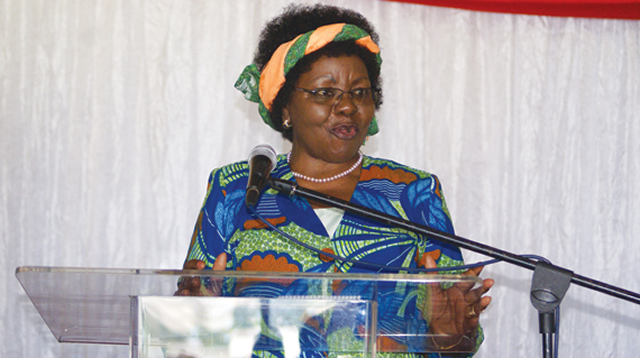‘Policy gap frustrates SMEs’

Business Reporter—
SMALL to Medium Enterprises and Co-operative Development Minister Sithembiso Nyoni says absence of policy support for registration of small businesses under her ministry is a stumbling block to formalising the sector. Despite being the fastest growing economic sector, employing thousands of people, the informal sector continues to face many operational constraints emanating from both policy and funding gaps.
About 85 percent of SMEs are yet to be licensed by the local authorities, official figures from the ministry indicate. Minister Nyoni admitted to Parliament last week that her ministry does not have a policy framework for SMEs registration, which members of the august house felt was a barrier to fostering a robust formalisation exercise for the sector.
“While my ministry encourages SMEs to register as companies and the Private Business Corporations (PBCs), currently there’s no policy on the registration of companies in my ministry,” Minister Nyoni said.
She, however, pointed out that in the meantime the government was facilitating an alternative framework for SMEs registration under the Ministry of Justice, Legal and Parliamentary Affairs.
“As part of the formalisation drive the ministry offers a facilitating role to SMEs in registering as companies or Private Business Corporations (PBCs) in terms of the Private Business Corporations Act, (24.11),” she explained.
Minister Nyoni said the ministry was in the process of crafting a formalisation strategy, which is going to further facilitate the registration process of SMES.
She allayed fears over perceived cumbersome process in registering small businesses.
She said interested businesspersons were only required to identify four company names from which the government would choose one.
“This is done in order to do the name search. They’ve to state the type of the business . . . This process only costs $5 for the name search and $20 for the certificate that’s required. That’s all and I think this path is helping the SMEs,” said Minister Nyoni.
She also said her ministry would lobby the Ministry of Local Government, Public Works and National Housing to assist in ensuring streamlining expenses paid by SMEs to local authorities.
“Most local authorities are surviving because of SMEs. Most local authorities get more than 50 percent of their revenue from SMEs but as a nation and a ministry, we would like this to be done properly and not through ripping the SMEs off,” she said.
Most informal business operators are often involved in running battles with municipal police officers who accuse them of operating illegally and would often confiscate their wares or impose heavy fines on them.
During an address on the informal sector review meeting in Harare last week, Minister Nyoni also expressed disappointment with the low levels of formalisation compliance, especially by local authorities.
“I can’t over-emphasise the importance of SMEs to our country . . . It’s, however, disappointing to note that only 15 percent of these MSMEs businesses were licensed with the local authorities. Figures show that 85 percent of SMEs businesses aren’t registered, reflecting high levels of informality,” said the Minister.
“Therefore, it’s imperative that the government, through the Ministry of Small and Medium Enterprises and Co-operative Development takes the driving seat to formalise the operations of all small businesses and co-operatives in Zimbabwe to promote the growth of this sector.”
Estimates indicate that close to $5 billion could be circulating in the informal sector in Zimbabwe, which has registered exponential growth following the challenges facing the manufacturing industry that currently operates at below 35 percent capacity.
It is hoped that a successful formalisation exercise of SMEs would increase the government’s revenue base and graduate the young companies into full-fledged corporates.
Meanwhile, Minister Nyoni reported that her ministry assisted scores of small scale miners to grow their business in 2015 through business management training in areas such as bookkeeping, financial literacy, business planning, and project proposal writing.
“In 2015, my ministry trained 500 small-scale miners, especially youths from the following districts; Shamva, Bindura, Mazowe, Umzingwane, Mberengwa, Shurugwi, Umguza, Bubi and Zvishavane,” she said.
“Small-scale miners are being organised to form mining cooperatives where they pool their resources together. The Ministry has registered over 35 co-operatives that are into mining. Registering them into cooperatives is a way of formalising them and it becomes easier for them to access support in terms of loans and equipment facilities,” she said.







Comments